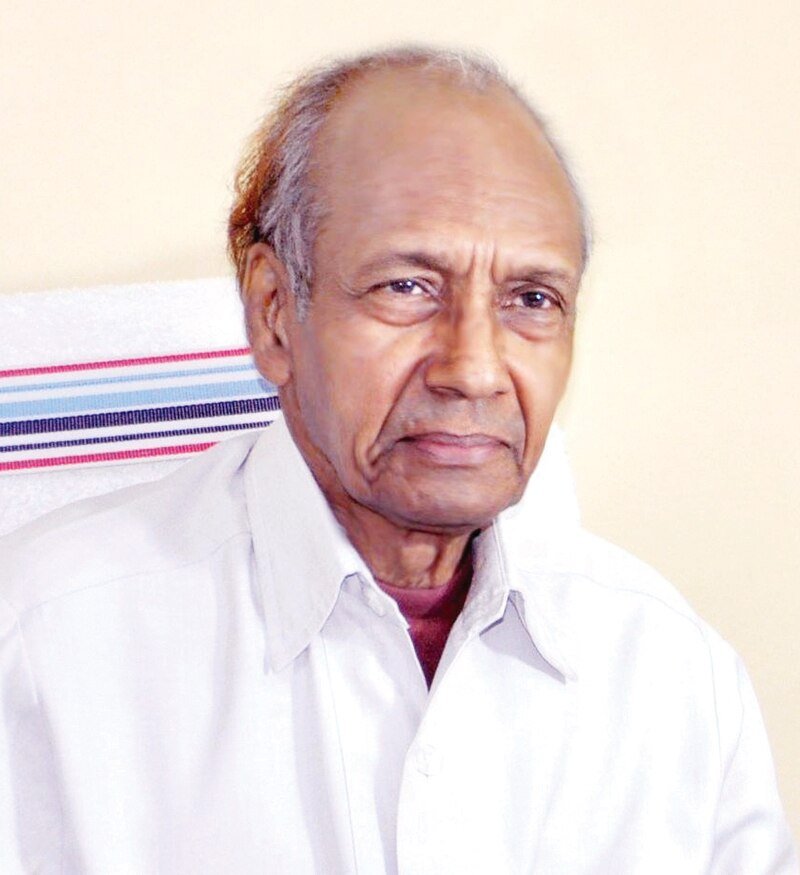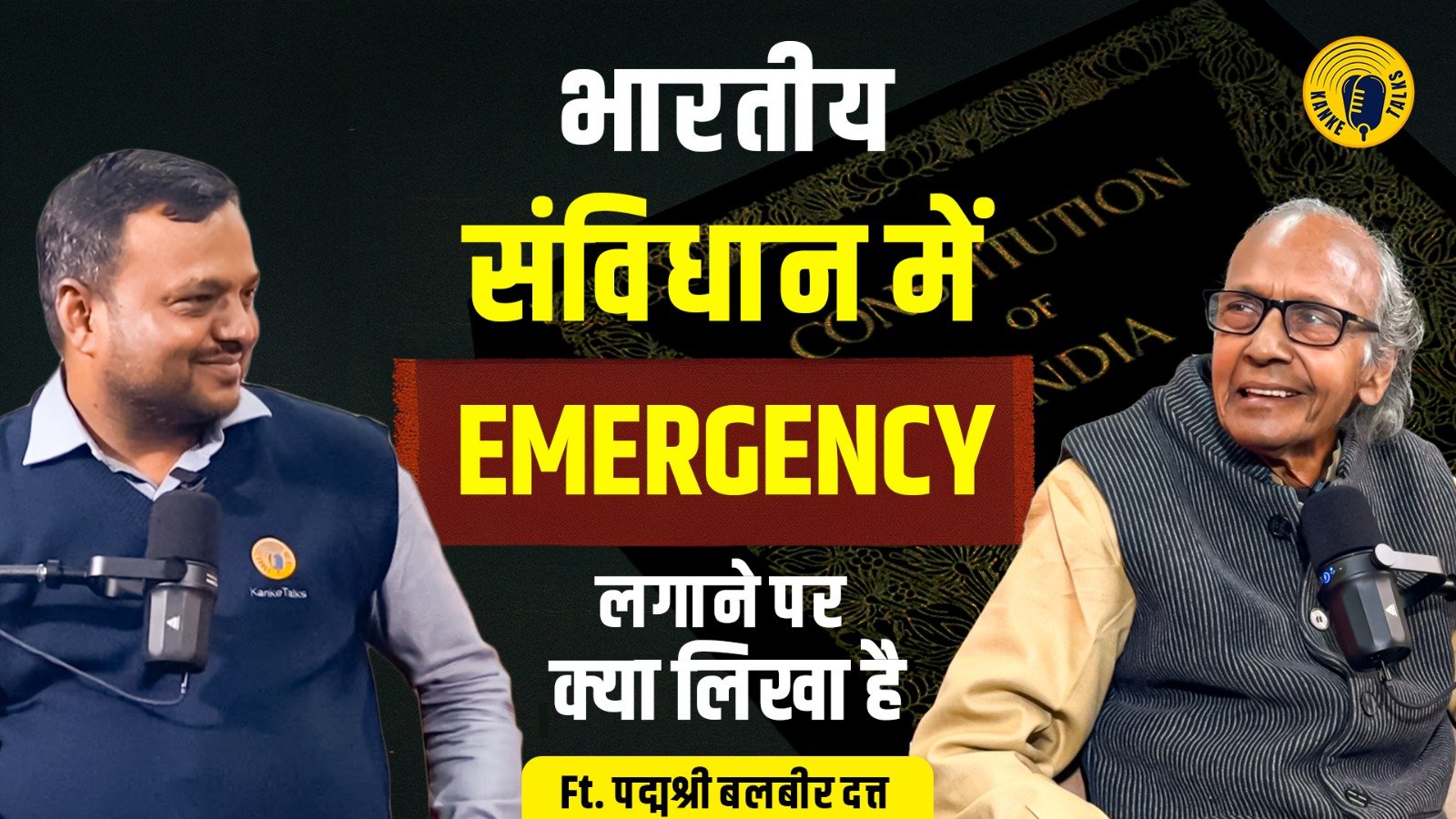Some lives aren’t just lived—they are recorded, witnessed, and spoken into history. Shri Balbeer Dutt, a name synonymous with honest journalism, doesn’t just tell stories. He lived with them. Born in Rawalpindi in 1935, he witnessed the birth of two nations, the turbulence of Partition, the slow-breathing growth of democracy, and the ever-evolving identity of modern India.
At 88, he doesn’t speak in headlines. He speaks in truths, warnings, and wisdom—offering a rare lens into the soul of a country that’s still learning to live up to its promise

From Rawalpindi to Ranchi: A Journey Beyond Borders
Balbeer Dutt’s life began in Rawalpindi, now in Pakistan. “Ours was a well-read family,” he recalls. Even before he could spell journalism, newspapers like The Tribune and Pratap filled his home in English, Hindi, and Urdu. This linguistic triad wasn’t just a coincidence—it was the DNA of pre-Partition India, where diversity was lived, not debated.
Partition changed everything. Dutt remembers the pain of displacement vividly—memories of streets, friends, and a home that now belonged to another nation. Yet, despite the wounds, he never harbored bitterness. When he visited Pakistan decades later, he found warmth, not hostility. “They were just like us,” he said. “They loved cricket, movies, and peace.”
The Accidental Journalist Who Never Left
Journalism wasn’t a formal choice; it was a calling. As a young man, Balbeer wasn’t trained in media schools—there were none. But his passion for truth and his obsessive reading habit led him to the newsroom. In 1963, he became the founding editor of the Ranchi Express—when Jharkhand wasn’t even a state, and journalism wasn’t a lucrative profession.
“Back then, journalism was a madness, not a career,” he chuckles. Salaries were low. Recognition was rare. But commitment? Unbreakable. “Today, journalists want jobs. Back then, we wanted to change society.”

Witness to History: Partition, Emergency & The Evolution of India
Balbeer Dutt is not just a journalist; he’s a living archive. Ask him about the Partition, and he speaks with haunting clarity. “We didn’t even believe Pakistan would happen. The British manufactured it.” He describes the strategic manipulation, the hurried decisions, and the scars they left behind.
On the Emergency of 1975, his words are sharp. “The British didn’t censor us like Indira Gandhi’s regime did. We were silenced, imprisoned, and humiliated. The entire opposition was jailed. That wasn’t democracy—it was dictatorship.”
Yet he’s fair. He credits Indira Gandhi’s leadership during the Bangladesh Liberation War and equally critiques her for imposing the Emergency. “History must be balanced,” he insists. “Praise where it’s due, critique when it’s needed.”
Jharkhand: A State Full of Potential, Trapped in Politics
A passionate chronicler of Jharkhand’s birth and betrayal, Balbeer Dutt doesn’t mince words. “Jharkhand was born with the promise of tribal upliftment. But after 24 years, where are we?”
He speaks of leadership failures, the loss of vision, and missed opportunities. While Chhattisgarh and Uttarakhand forged ahead, Jharkhand remained entangled in internal divisions—tribal vs non-tribal, party vs state, and politics vs development.
“The people who fought for Jharkhand’s creation aren’t the ones leading it today,” he laments. “Leadership here lacks long-term vision. They can’t see beyond elections.”
On Journalism Today: Power Grown, Credibility Lost
Balbeer Dutt doesn’t hide his disappointment in modern media. “Media’s power has grown, but its credibility has shrunk. We’re more commercial, less courageous.”
In the era of clickbait and paid news, he longs for the days when journalism served society, not TRPs. “We started newspapers on shoestring budgets. Today, billion-rupee studios push biased narratives.”
To budding journalists, he has one piece of advice: Follow your passion, not popularity. Whether it’s cricket like Sachin Tendulkar or poetry like Neeraj, success lies in pursuing what you love—not what you’re told.
A Nation That Forgot Its Revolutionaries
Balbeer Dutt’s criticism isn’t reserved for politicians alone—it’s aimed at historians too. “India didn’t win freedom by Gandhiji’s tears alone,” he says. “We forgot the sacrifices of Subhash Chandra Bose and the Azad Hind Fauj.”
He recalls how the British feared revolutionaries more than satyagrahis, and how Netaji’s army inspired mutinies within the British Indian forces—bringing the Raj to its knees.
“Why is there no proper mention of this in textbooks?” he asks. “Why does history glorify only one side of the story?”
The Plague of Caste & The Failure of Leadership
In a powerful segment, he delves into India’s caste politics—especially in Jharkhand. He critiques leaders who weaponize identity instead of fostering unity. “Caste is not a strategy. It’s a wound we keep scratching.”
He speaks of Jayaram Mahto’s rise, the Mahato-Kurmi community’s shifting allegiances, and how every 15 years, Jharkhand changes its leader—without changing its future.
“The issue isn’t about tribal vs non-tribal. It’s about vision vs vote bank. The state needs leadership that serves all, not some.”
Addiction: The Silent Killer of Progress
When asked about Jharkhand’s rising drug culture, Dutt is visibly concerned. “We are walking into the same trap as Punjab. Drug addiction is not just a personal issue—it’s a societal disaster.”
He recalls the days when hadiya (a traditional tribal drink) was used in rituals. “Now, it’s a poison ruining families.” He applauds states like Bihar for imposing liquor bans but insists prohibition alone won’t solve it. “We need education, awareness, and alternatives.”
India’s Changing Global Role—and Its Critics
On India’s current political climate, Dutt treads a fine line. He critiques the opposition’s aggressiveness, especially when it hurts the country’s global image. “Criticism is good, but self-sabotage is not,” he says, alluding to the Pulwama attack and the skepticism over India’s response.
He defends PM Modi on international diplomacy but warns against comparing every leader to Hitler. “We must debate. But let’s be honest about our history and fair in our judgment.”
A Message to the Youth: No Shortcuts to Greatness
In a world addicted to reels, shortcuts, and instant results, Balbeer Dutt leaves his most powerful message for today’s generation.
“Read books, not just headlines. Learn history, not just opinions. Real growth takes time—just like a tree or a good meal. Instant coffee doesn’t build empires.”
Final Thoughts: What Jharkhand Needs, What India Deserves
Balbeer Dutt doesn’t just reflect—he hopes. He believes in Jharkhand’s potential and India’s destiny. “This state can be the richest in the country,” he quotes APJ Abdul Kalam. “But only if we all treat development like a yajna—where everyone offers aahuti (sacrifice).”
He ends with a quote from John F. Kennedy, adapted for Jharkhand:
“Don’t ask what Jharkhand can do for you. Ask what you can do for Jharkhand.”

No responses yet